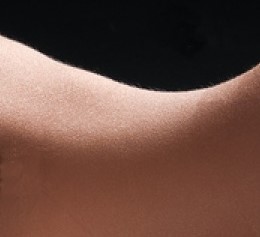Catlin Moran, a well-known feminist writer, has devoted her life to women's causes. In
The Times Magazine today, she argues for equality in popular terms for yearning and sexuality, listing a whole thesaurus for men's arousal, and comparing it with the only word she could muster for women's desires: moist. She describes "moist" as the worst word in the lexicon, although I have always considered "damp" or "wet" to be worse words - I'd rather be moist than damp or wet. She concludes by calling for new terms for female arousal, to redress the balance in the name of equality.
Now she asks on her Twitter feed, "What are the downsides of being a man?" I feel compelled to answer, but can think of no great problems I suffered in youth from my gender, so perhaps the question was rhetorical, or ironic. If I suffered at all, the problems were from my class – an old-fashioned word, but one meaning a working class background with basic education, low in expectation or encouragement. Most in my school left at 16 to work in factories, with no thought of university or even career jobs. A good apprenticeship was an aspiration. The sixth form was a runt class, and the few of us who left for higher education knew that Oxbridge was closed to comprehensive school boys with Midlands accents. I was fortunate indeed to be selected into St Thomas' Hospital.
St Thomas' medical school was filled with the public-school sons of consultants (but was considered less exclusive than Barts, which was rumoured to only select the sons of Barts consultants). There was a quota of women, but only to fill the legal minimum, and they from Roedean, Cheltenham Ladies College, and their ilk. I was the first and only working class entrant, possibly selected to fill another political quota. The teaching was world class, but I felt an outcast.
That early prejudice is well past. Now I feel the prejudice of the young against the old. TV programmes show active, virile people, chasing adventure, or idly flirting. Even the adverts aimed at we oldies – for funeral plans, care homes, stair lifts, or equity release – have actors in their 50's who look a fit generation away from me. In shops, people are annoyed with geriatrics who fumble for their money or can't work the card readers, and assistants look at me pityingly, thinking I should be in a care home, and turn to talk past me to someone more interesting even as they scan my items.
Only now am I aware of even mild prejudice against males. I am still working, but only in a consultant role, and most of the people I work amongst are young women, and the bosses are all women, and there is no danger that they are ever going to proposition me. There is, though, a sense that the selection process is unconsciously biased, and women will be given preferential treatment – but that is more likely to be my own opinion than fact. Also, as a man, I am aware that I tend to push my opinions with a strident voice, so make myself hold back, a repressed role that is forced upon me. There is an awareness that to be a white male, and especially an oldie white male, is to be placed behind the line of women, minorities, the disadvantaged, the LGBT community and people of colour.
I hope I have these terms right - they seem to change every few years, and all the other downsides of being a man will be as empty air compared to the wrath of these groups if I mislabel them. For that is the greatest downside of all: the virulence of complaint if we men step beyond the narrow lines they prescribe for us.


